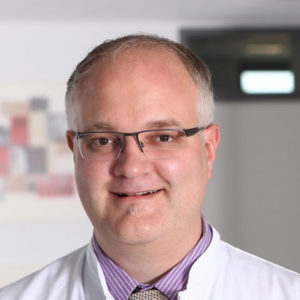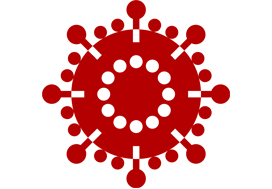How our lives have changed. Over two months ago we published a popular blog on the effect of COVID-19 on our surgical practice (https://www.bjuinternational.com/bjui-blog/covid-19-and-urology/). In many ways it informed us as to what to do during challenging times to keep our patients safe.
As we gradually take careful steps out of lockdown, our minds are focused on the most important of all words – SAFETY.
While every nation will have differences and nuances, the principles of learning from each other, remain the same as they did when lockdowns started.
I am not surprised by new and ever changing information about the disease almost every day and see international collaboration as a powerful and positive tool in this situation.
With this in mind I requested our friends from Italy, China, Germany and New Zealand for their own perspectives.
Here are their thoughts for your reading pleasure.
Please feel free to insert your comments under the blog and share on social media.
Yours in friendship,
Prokar Dasgupta
Editor in Chief, BJUI
 After having been hit by the pandemic just shortly after Italy, Germany experienced some early waves of COVID19 especially after some carnival festivities had spread the disease in some areas. The German government decided quite early to implement a strategy to deal with the outbreak. Initially the Ministry of health gave the restriction order to potspone evey plannable / elective surgery and hospital treatment, to „flatten the curve“ and thus avoid situations like in Italy, Spain or in the USA, so that the Healthcare system would always allow for those in need to get an unflattered access to ventilation. This order had an immediate effect on urology practice throughout Germany. Some areas in Germany struggled with severe numbers of COVID19, others were barely affected by the pandemic.
After having been hit by the pandemic just shortly after Italy, Germany experienced some early waves of COVID19 especially after some carnival festivities had spread the disease in some areas. The German government decided quite early to implement a strategy to deal with the outbreak. Initially the Ministry of health gave the restriction order to potspone evey plannable / elective surgery and hospital treatment, to „flatten the curve“ and thus avoid situations like in Italy, Spain or in the USA, so that the Healthcare system would always allow for those in need to get an unflattered access to ventilation. This order had an immediate effect on urology practice throughout Germany. Some areas in Germany struggled with severe numbers of COVID19, others were barely affected by the pandemic.
In our department, besides the usual hygiene measures like distancing, triage of patients by questionnaire and sending staff into „home office“ (the German term for working from home), we immediately cancelled all benign cases, as well as low risk Prostate Cancer or small kidney cancer cases. Moreover, we additionally postponed those patients who would clinically fit into a higher risk category for suffering from a severe COVID19 course if they had acquired it, i.e patients with diabetes, severe COPD, older patients etc. also, initially surgeries with a higher likelihood for the necessity of postoperative ICU surveillance and treatment were postponed if possible.
After these initial tremendous cuts in caseload and patient numbers had more or less emptied the Intensive care units as well as hospital beds throughout Germany, it slowly became clearer that the quite solid Health System offered a lot more hospital beds as well as ICU / ventilation options, and that the general hygiene measures had apparently lead to a less intense outbreak in most parts of the country, some states and counties allowed to stepwise get back to a (reduced) normality – always under the caveat that epidemiological numbers stay low.
The German Government acted with a strong scientific support by one the world’s most respected coronavirus virologists, Prof Drosten of Charité Hospital Berlin, together with a team of the German Disease Control Institution („Robert Koch Institut“), and worked closely together with the state governors of the 16 German states, to share a common bundle of measures (still with nuances from state to state). Mass testing was made available quite early (yet, usually restricted to those with symptoms or contact persons). Currently, of 174,824, nationwide confirmed cases 7,917 people have died, making the death rate hit 4.5%.
Since a couple of days, we experience a stepwise way out of the lockdown in everyday life, with every state setting up slightly different measures; still, physical distancing and face masks are mandatory and shape the picture of everyday life. Since last week, restaurants and bars are opening up again, and even the German Premier league went back to playing (with extremely strict measures like regular testing for every team member, as well as quarantine, but without any fans at the stadiums). Of note, regular testing for hospital staff is not required throughout Germany…
The way we work in our department has changed dramatically since the beginning of the pandemic. Our staff gatherings are restricted to only a few people, everybody wears masks, and is trying to keep their distance as much as possible, staff members who have office jobs like secretaries work from home. Urologic Surgery has resumed and is now performed back to almost normal case numbers; robotic cases have resumed to 100%, now performing 10 RARPs per day again. The waiting lists are long enough to cope with the otherwise probably reduced demand (due to a lack of biopsies, or outpatient urology consults resulting in referrals). There are still no visitors allowed, our hospital still has a separated entrance gateway for an initial triage, we send patients home sooner than we used to (for various reasons, patients usually stayed as inpatient for a week after surgery).
A recent survey of the German Working Group on Laparoscopic and Robotic Surgery of the German Society of Urology, amongst the busiest minimally invasive departments in Germany, reflected the situation of a quite colourful picture of minimally invasive Urology during the pandemic; it ranged from departments that are still barely functionally operating to hospitals with little or no restrictions in numbers. In some departments, parts of the wards were closed, and urologists were taking care of COVID 19 wards instead. The huge variety of responses reflects the differences in epidemiological impact in the 16 states of Germany – resulting in different restriction order patterns by the governments and county authorities. The results of our survey are currently put together and are soon to be published.
Dr. Christian Wagner , FEBU
Head of Robotic Urology, St. Antonius Hospital Gronau , Germany
 In China, after a 3-month period of lockdown, the whole country is looking forward to run back to the normal life. The central government of China asked the local authorities lead the economic and daily life come out of lockdown gradually. Although the atmosphere of pandemic in China has become less tense, we are still paying fully attention on the prevention and detection of COVID-19. Below are the brief measures used in our hospital after the complete lockdown. It is important to note that the rules and guidelines varied from place to place, and adjusted according to the up-to-date situation.
In China, after a 3-month period of lockdown, the whole country is looking forward to run back to the normal life. The central government of China asked the local authorities lead the economic and daily life come out of lockdown gradually. Although the atmosphere of pandemic in China has become less tense, we are still paying fully attention on the prevention and detection of COVID-19. Below are the brief measures used in our hospital after the complete lockdown. It is important to note that the rules and guidelines varied from place to place, and adjusted according to the up-to-date situation.


